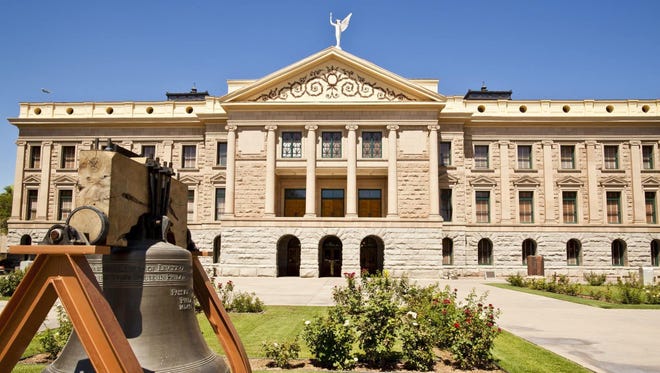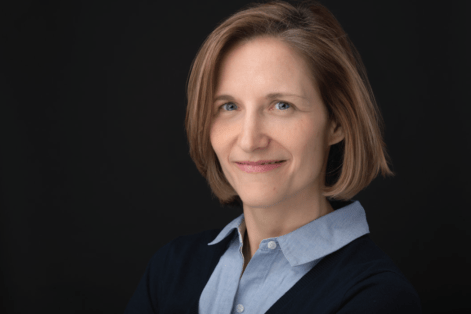Advertisement
The largest presidential battleground state looked to be slipping away from Democrats. Then Joe Biden started winning primaries.
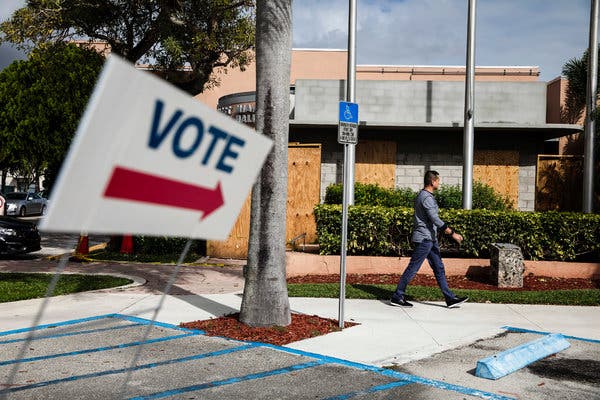
MIAMI — A sense of doom spread not long ago among weary Florida Democrats, and not over a viral pandemic.
They had lost winnable races for governor and Senate two years ago in nail-biter recounts. Many now feared that the state’s voters, with their reflexive disdain for political revolution, would spurn Bernie Sanders in November, giving President Trump a far easier path to re-election.
Florida’s long status as a swing state could be over.
Then came Joseph R. Biden Jr.’s resurgence. Democratic leaders, who expect Mr. Biden to trounce Mr. Sanders in Tuesday’s primary, began breathing more easily. But come November, clawing back votes in the nation’s biggest battleground state will still be a daunting task.
For all of the state’s foibles, from Florida Man to hanging chads, Florida remains a microcosm of the country, a mirror reflecting the contradictions and divisions of the national electorate. It is a primary state that offers a glimpse of the general election, in terms of which candidates win and, perhaps more important, which voters show up.
“If you can win in Florida, you can win anywhere,” said Rosy González Speers, executive director of Forward Florida Action, a voter registration organization. “You have a tough electorate, an unpredictable electorate, a close electorate.”
Florida is a political amalgamation of several regions of the country. The liberal southeast, from Miami to West Palm Beach, votes like the Northeast. The traditional southwest, including Naples and Sarasota, votes like the Midwest. The conservative north, especially the Panhandle, votes like the South. The swing middle — the Interstate 4 corridor that political pundits drool over during election years — is up for grabs.
This diversity poses big campaign challenges. For every expanding demographic force (Puerto Ricans in the Orlando area for Democrats), there is another force to match or surpass it (Midwestern retirees on the Gulf Coast for Republicans). For every sterling economic indicator, such as the state’s 3 percent unemployment rate, there is a sobering statistic to counter it, such as the 13 percent of people without health insurance.
And there is no telling what the coronavirus, which threatens the state’s $86 billion-a-year tourism industry and its more than five million people over the age of 60 — about a quarter of Floridians — will do to the state’s economy and population.
“I no longer buy this whole notion of the American dream,” said Maritza Lacayo, 29, a curator at the Pérez Art Museum in Miami, echoing the concerns of other younger Democrats. “I hear all of my friends, who come from so many different countries, and they’re like, ‘Of course we’re living a better life, but I have $100,000 in student debt. I can’t open a credit card.’”
Ms. Lacayo volunteered for Mr. Sanders’s primary campaign in 2016, but preferred Elizabeth Warren this time around, thinking she might be more electable. Ms. Lacayo, whose parents emigrated from Nicaragua in 1981, said she had seen opportunities shrink for her generation, especially in Miami, a city of expensive housing and low-paying service jobs that consistently ranks as one of the most unequal in the country. “My parents had it a little bit easier,” she said.
For Democrats, winning requires a Goldilocks-style balance: turning out base voters in cities in South and Central Florida while also keeping Republican margins close in rural and exurban areas in Southwest and North Florida. In 2016, Hillary Clinton did the former exceptionally well but the latter not so much, costing her the state and the presidency.
The party’s subsequent 2018 losses offered little clarity on how to cobble together a winning coalition. In a successful year for Democrats nationally, Senator Bill Nelson, a moderate Democratic incumbent, lost his seat by about 10,000 votes, and Andrew Gillum, the progressive nominee for governor, lost by about 32,000 votes. Florida, which has not elected a Democratic governor since 1994, felt like it was slipping away from the party.
Since then, party leaders have made several calculations about how to try to win in 2020: Mobilize black voters, as Mr. Gillum did. Hold on to Jewish voters, as Mr. Nelson did. Focus on health care, education and climate change, issues that lifted moderate candidates in competitive congressional districts by attracting suburban voters, especially women.
Given big suburban turnouts in the recent Virginia and Michigan primaries, it could be a promising sign for Democrats on Tuesday night if they see more interest than in 2016 from voters in places like Pasco County, near Tampa, and St. Johns County, near Jacksonville.
“The Republicans, I feel, have lost their way,” said Caroline Zucker, 81, the chairwoman of the Sarasota County school board and a lifelong Republican who switched parties last month to vote Democratic for the first time. “They’re not for the people — they’re for the more affluent people. I found the inclusiveness of the Democratic Party to be much more appealing.”
“This country was built on immigrants, and to see what’s happening with the kids left at the border,” Ms. Zucker added with a deep sigh, “it just breaks my heart.”
Cecilia Tavera-Webman, 63, who attended a Biden campaign event in Doral last week, said worrying over politics and the state of the country has made her gain weight since 2016: “The Trump 10, I call them.”
“My health insurance keeps going up — I’m paying $750 a month,” said Ms. Tavera-Webman, a realtor. “There’s no maternity leave, no paternity leave. And the guns — putting people with guns in our schools? We need to do better.”
When voters approved a landmark ballot measure two years ago to restore the voting rights of Floridians with felony convictions, Democrats hoped that expanding the electorate might give the party a boost. But the Republican-controlled Legislature and Gov. Ron DeSantis imposed financial requirements last year that would keep nearly 775,000 former felons ineligible, according to a recent analysis conducted for civil-rights organizations that are challenging the restrictions in court.
An urgent task for Democrats has been to ease the concerns of Hispanics who are spooked by how the party has jogged to the political left. Latinos have flocked to Mr. Sanders elsewhere in the country, but not in Florida, the heart of the diaspora of Cubans, Nicaraguans and Venezuelans who fled left-wing authoritarianism and whose support Mr. Trump has worked to consolidate.
Other than older Cubans, Florida Hispanics tend to lean Democratic, but often have a visceral negative reaction toward any discussion of socialism. Mr. Sanders describes himself as a democratic socialist who wants to resurrect New Deal-style policymaking. Still, a Telemundo poll this week showed 70 percent of Florida Hispanics would not vote for a candidate who describes himself as socialist.
At stake is the voter math in all-important Miami-Dade County, the most populous county in the state, where 69 percent of residents are Hispanic. If Democrats fail to win big in Miami-Dade, they cannot make up the deficit elsewhere. Mrs. Clinton routed Mr. Trump by 290,000 votes in the county, and even that margin was not wide enough for statewide victory.
After the defeats of 2018, even Mr. Gillum, who initially dismissed the Republican attack that he was a “socialist,” has concluded that Democrats must come up with a good response.
One approach has been to cast Mr. Trump as authoritarian.
The Florida arm of Priorities USA, a leading Democratic super PAC, began calling the president a “caudillo,” a word used in Latin America to refer to strongmen. This came after interviews with Hispanic voters in the state, who said unprompted that they feared the United States could slide into authoritarianism reminiscent of what they or their families had fled in Latin America. Earlier this month, the Florida Democratic Party devoted one of its weekly paid programs on Spanish-language radio in Miami to the subject.
“The attacks on the press, the insults to politicians — all of this behavior by Donald Trump tracks a lot with what us Venezuelans saw with Hugo Chávez,” said Maurizio Passariello, a political consultant and talk radio host.
The goal is to hold on to voters like Natacha Ferrera, 45, who was persuaded by her daughter to register as a Democrat in 2018. The family immigrated to Miami from Cuba in 2001 and felt a natural inclination toward Republicans, Ms. Ferrera said, until the party nominated Mr. Trump.
“We started changing when we heard President Trump’s rhetoric, which at times we found offensive, especially against women and immigrants — legal and illegal,” Ms. Ferrera said. “It’s not about voting for a party. It’s about voting for a better future as immigrants.”
Her daughter, Daniela Ferrera, 22, said hearing Mr. Sanders push for government-run health care reminded her of seeing her cousin in Cuba dying at a hospital last year without drinking water or medication. She fears that a too-liberal platform in the general election would cost Democrats dearly.
“It’s heartbreaking to me,” said Ms. Ferrera, who is enthusiastic about Mr. Biden’s candidacy. “Because we’ve been making so many inroads with the Cuban-American community.”
Susan C. Beachy contributed research.
-
-
-
- Learn more about the Democratic presidential contenders.
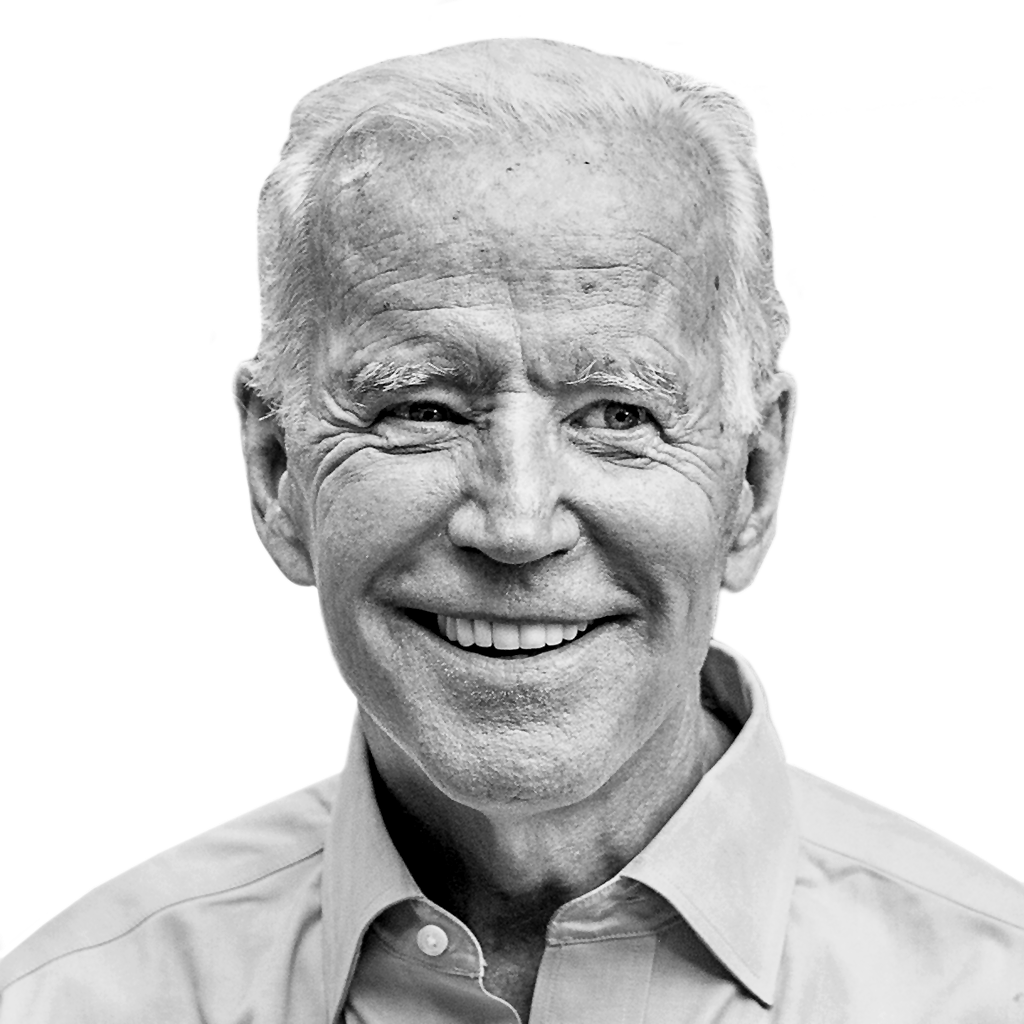
Joe Biden
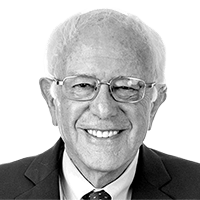
Bernie Sanders

Tulsi Gabbard
-

